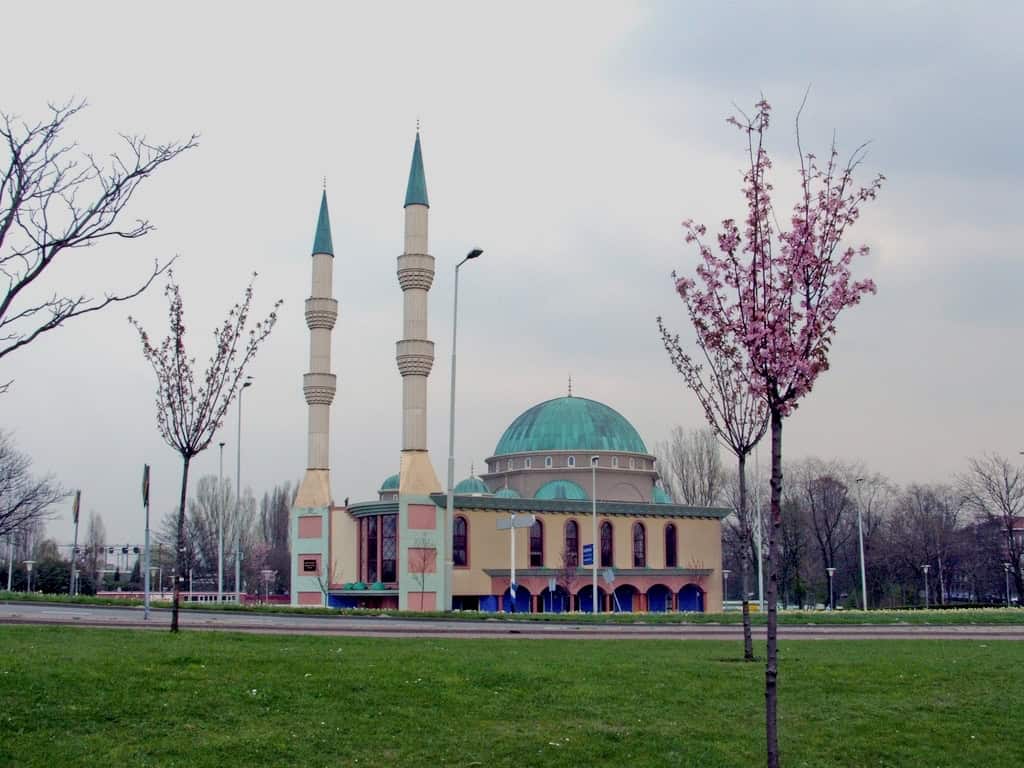Al Wassiyyah Al Shar'iyyah
The Islamic Lawful Will
It is very important and is actually of highest priority that you read
about all what concerns death from any Fiqh book, starting from dying
to cleaning/washing the dead, shrouding, burying, praying on him,
funeral…etc.
Until then I chose to give you the general line of the Wassiyyah
(Will), which is very important to be done NOW. The underneath is
only a general line or could be a simple form of how an Islamic Will
could be, each individual case has it's own under details. This form
has been written by a scholar in Arabic language and was distributed
in the Mosques.
Please note the following:
1) The main point that the person who wrote this will is
concentrating on, is to make the procedures of death go under the
teachings of Quran and the way of prophet Mohammed SAAWS. You will
notice that he is trying to stop all forms of Bida'a, that are
actually being practised among many Muslim families.
2) Note that the person who wrote this will is a man, so the will of
a woman could have little differences. (ie where women are not allowed
in this will, men would not be allowed for a woman's will)
3) You might also want to add other points according to your financial
status. As I said, the details will differ from one person to
another.
4) Don't forget to make a record of the debts that are in your
custody, to guarantee the rights of your creditors. Also remember
that the most important debts, are those in your custody towards Allah
SWT (i.e. the number of fasting days you owe to Allah, an amount of
Zakat you haven't paid, ..etc.). It is very important that we make
sure that these debts are being paid after our death, if we did not
pay them during our lives.
5) For the sisters and brother who live in non Muslim communities
and/or with non Muslim families may need to add other points relating
to their situations and the procedures of death taken where they
live.
6) Please don't forget to pray for the persons who shared in writing,
translating and proof-reading this form. Jazakom Allaho Khairan.
Al Wassiyyah Al Shar'iyyah
The Islamic Lawful Will
"It is prescribed on you, when death approaches any of you, if he
leaves any goods, that he make a bequest to parents and next of kin,
according to reasonable usage, this is due on those who fear God (Al
Mottaqeen) — If anyone changes the bequest after hearing it, the
guilt shall be on those who make the change, for God hears and knows
(all things)." (2: 180 & 181).
Narrated Ibn Omar (may Allah be pleased with them), that the prophet
of Allah SAAWS said: "It is not right (fair) for a Muslim who has
anything to be disposed of (willed), to sleep for two nights unless
his will is written with him." (Bukhari)
Narrated Anas Ibn Malek (may Allah be pleased with him), who said: The
general line of the prophet's will when he was dying (at the last
moments) was Al Salat (prayer) and those whom you possess (captives)".
(Ahmad & Ibn Majah)
——————— Sample Of The Will ———————
1- I entrust (request) that if you find me to be dying, and you are
certain of my death, to call one of the righteous whom you know to
mention Allah and do as many supplications as he can beside me, if
this is not going to place an excessive burden on him.
And "nothing better than saying: La Ilaha Illa Allah (no God but
Allah)" — "O' Allah forgive me and turn on me with mercy
(forgiveness), for you are the oft returning Most Merciful" — "There
is no God but You (Glory to Thee); I was indeed wrong (unfair)"
—Basically, anything similar to the above Dua'a is acceptable,
without me being directly ordered to "say so and so …etc."
2- I ask the attendants of my death to read much from the Holy Quran,
especially Surat Yaseen (no. 36). In addition, please read a lot of
well known supplications from the prophet SAAWS or the righteous, or
any supplications that are not contradictory to the Quran and/or
Hadith teachings.
3- When death is assured, I strictly forbid the following unislamic
practises: Any form of screaming, face slapping/striking, tearing
clothes, or supplications from pre-Islamic paganism. Furthermore, I
ask that my closest relations perform the following: Close my eyes,
tie up my chin with a piece of cloth (to keep my mouth from opening)
and to remove my clothing (in which I died in) and change them for new
clean ones.
4- I would like those of my family or friends, who are closest to me
and who possess knowledge of the Islamic way of washing the dead, to
wash my dead body when I die. He/she must use a piece of cloth, a
shred of material, a rug, or wear gloves while washing my private
parts. Not everyone is allowed to enter into the area of my deathbed,
unless necessary.
5- Women are not allowed to enter the place of my death until I am
transported to the grave. Thereafter, it is permissible to allow them
entrance into the house, in order to offer their condolences (after my
body has left the house).
6- All the expenses with regards to the washing, shrouding and
burying procedures should be kept to a minimum (no exaggeration or
extravagance), and shall be paid for from my own or my family's
money.
7- The actual burial of my body should take place as soon as possible
after my death, and in the same town where I die. Under no
circumstances do I want the burial of my body to be delayed (i.e.
awaiting the arrival of certain people/travellers). I want my funeral
procession to be a quiet one, full of humble (submissness to Allah
SWT). Note that women are not allowed to attend my funeral, not even
my mother, wife, sisters, or daughters.
8- Whoever attended my death and/or my funeral has performed his
condolences towards my family. The three days, following my death,
are to be kept open for receiving condolences from those who did not
attend my funeral. No condolences are to be offered after three days
of my death, except for those who were out of town or who were unable
to attend for valid reasons; under such special circumstances, they
may offer their condolences alone, after my family's sadness has
diminished.
9- I certify myself free of any responsibility towards Allah SWT in
such a case that there occurs any forbidden association, mixing, or
intermingling between men and women upon my death, seemingly under the
guise of offering condolences or under any other reason.
10- I want my body to be buried in a tomb, specifically, the grave
ought to be dug in proportion, to my size (length) if possible, much
like they do in Arabian Gulf.
11- I want the righteous to carry my body to the grave, those dearest
to me first, then if need be, those less dear, and so on. Please lay
my body on it's right side, I facing "Al Qibla".
Then an amount of dust/earth is to be scattered on my head thrice: the
righteous shall say during the first turn: "From the earth, We created
you". In the second turn, he shall say: "And into it, shall We return
you". And in the third one, he shall say: "And from it shall We bring
you out once again". The original Arabic text is in the Quran
(20:55). After the third turn, he shall say: "Bismillah, Wa Ala
Millati Rasoolillah" or "In the Name of Allah, and on the way (creed)
of His prophet".
12- I ask those, who can, to please remain for sometime after my
burial, in order to keep me company while I am being questioned by the
Angels of Allah SWT. It would be appropriate during this time, to
reflect upon or think deeply about death, and to be prepared for what
must become of us all. During this time, please pray for Allah's
Mercy on my soul and make a lot of "Dua'a" for me.
13- My inheritors should pay my debts and financial liabilities as
soon as I am buried. If they do not have enough to cover my debts,
the inheritors shall transfer the debts into their custody, as a
guarantee for the rights of my creditors.
And if I have ever committed any act of injustice (outrage) towards
anyone during my life, then I ask my inheritors to return their rights
to them, and to please do your best to ask them for their
forgiveness.
14- No weekly ceremonies or gatherings set for receiving condolences
after my death (please see item #8). No ceremonies after 40 days of
my death, no annual ceremonies, or any other Bida'a activity to take
place in commemoration of my death. Under no circumstances, are any
condolences to be received from the same person more than once.
15- I request of my children to be in constant contact with all their
relatives, and to honour my relatives and closest friends after my
death. I ask that they please be generous in making constant
Dua'a(prayers) for me.
16- I entrust my wife with the task of caring for and raising our
children according to the Holy Book of Allah SWT – the Quran and Sunna
(way of life) of the prophet SAAWS. Please ensure that they acquire
the necessary education that they will need in order to both increase
their own knowledge while being of benefit to the entire Islamic
Umma. as you know the prayers which I made at the time of the birth of both my children.
17- I also request of my wife that she treat my relatives well and be
kind to them, specially my mother, father and siblings. Furthermore,
if she has any future intention of getting married, which is better,
then please do so after arranging the children's matters, especially
the girls.
OPTIONAL POINTS
18- I bequest one third of my possessions to be spent on charity
projects (i.e. building mosques, Islamic organizations, Islamic
institutions, medical public clinics, wells in the desert, orphans
custody, …etc.)
P.S. This point concerns those who possess enough money, and such
that spending excess money shall not harm his/her inheritors (or
infringe upon their rights).
19- I donate my private library to students who seek knowledge, in
general specifically to the following organizations:
( ).
P.S. This point concerns those who possess a home library, where
keeping it at home will not be as beneficial as it could be if donated
for public use.
20- . . . . . . . . . . . . . . . . . . . . . . . . . . . . .
.. . . . . . . . . . . . . . . . . . . . . . . . . . . . . . .
.. . . . . . . . . . . . . . . . . . . . . . . . . . . . . . .
21- . . . . . . . . . . . . . . . . . . . . . . . . . . . . .
.. . . . . . . . . . . . . . . . . . . . . . . . . . . . . . .
.. . . . . . . . . . . . . . . . . . . . . . . . . . . . . . .
Witness One Witness Two The Testator
—
M Junaid Tahir
http://paradigmwisdom.blogspot.com/
http://ae.linkedin.com/in/mjunaidtahir
https://groups.google.com/group/ParadigmWisdom


